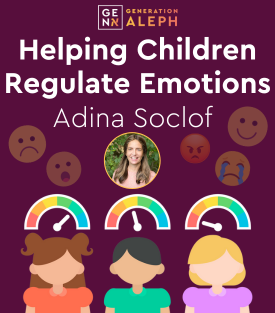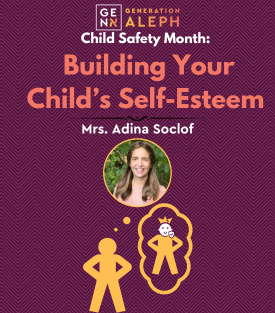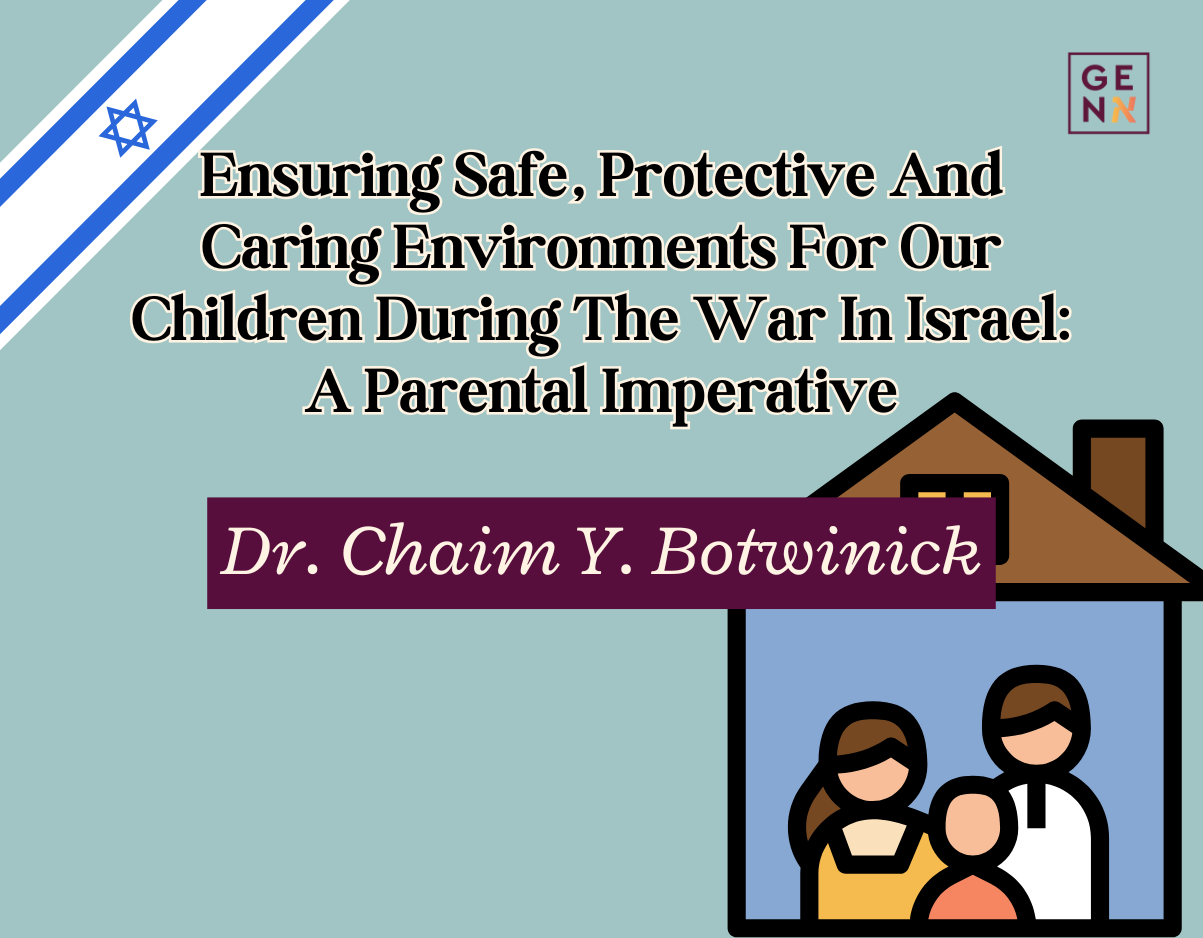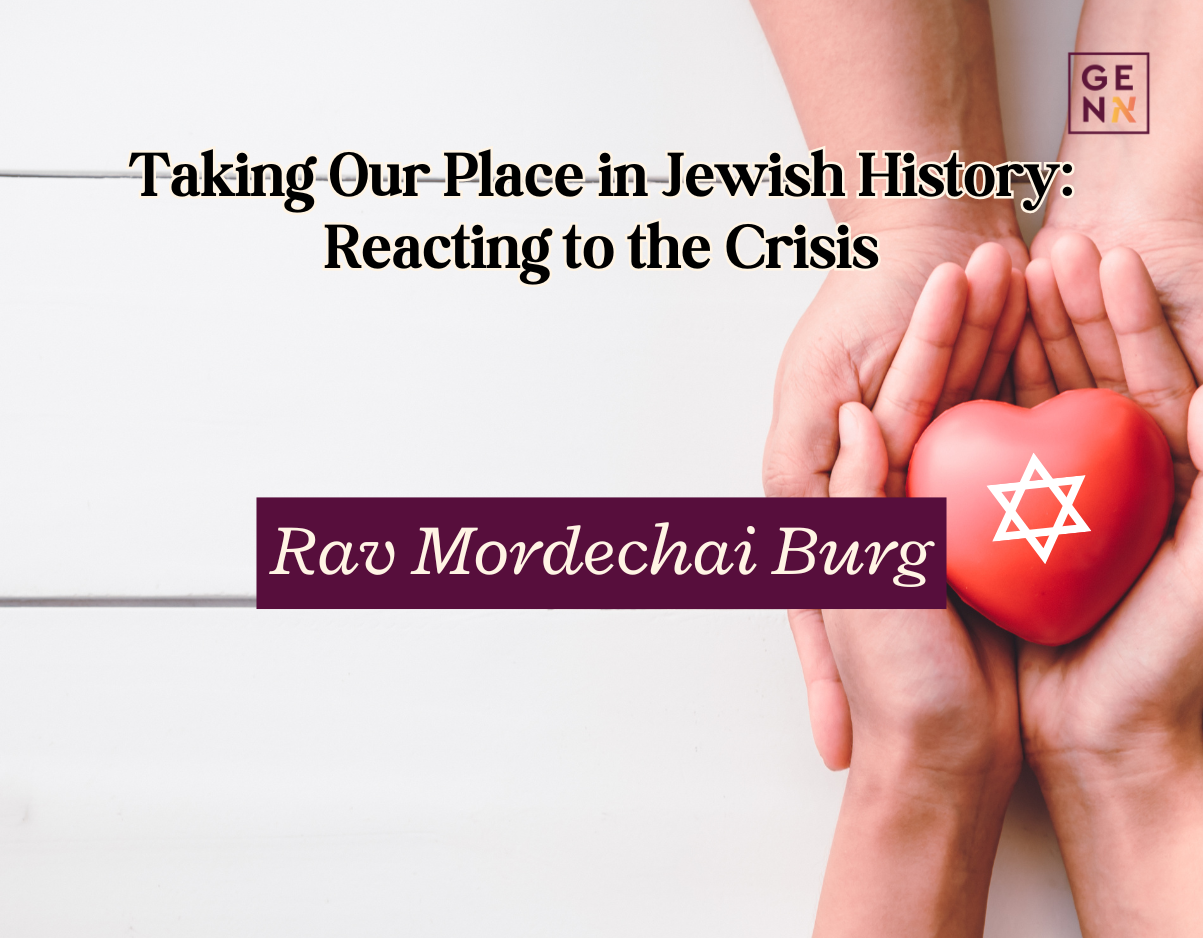“Is it wrong that I feel afraid? I feel like if I had more Emunah I wouldn’t be afraid.”
In one form or another parents and educators have been fielding questions like this for the past two weeks. It’s a good question. Dovid HaMelech sang in Tehillim: גַּ֚ם כִּֽי־אֵלֵ֨ךְ בְּגֵ֪יא צַלְמָ֡וֶת לֹא־אִ֘ירָ֚א רָ֗ע כִּי־אַתָּ֥ה עִמָּדִ֑י, Even when I walk in the valley of darkness, I will fear no evil for You are with me. At first glance it would seem that Dovid HaMelech is saying that one who walks with Hashem will not experience fear even when walking through the valley of darkness. The implication is that one who is afraid is lacking in their Emunah. How then are we to respond to our children who are afraid in these dark times?
The Chazon Ish was once asked how he was able to move forward after sitting and listening to so many people who came to share their pain and suffering. The Chazon Ish replied, “The suffering that I hear goes to an incredibly deep place within me but there is an even deeper place where it does not go.” I love this story. The greatness of the Chazon Ish was that when someone came to share their pain with him he was fully present with them, sharing their burden as they told their tale of woe. They came to this great Tzaddik not only because he could offer sage counsel but because they knew that in him they would find someone who would truly empathize with their pain. And yet, because the Chazon Ish was so deeply connected to his soul, to his own inner source of strength, there remained a place within him where the pain could not reach. From this core self the Chazon Ish was able to move forward even with all of the pain he carried.
I strongly believe that Emunah works in the same way. Emunah does not mean the absence of emotions, in fact quite the opposite. One who has deep faith in Hashem has deep faith in themselves. They know that all is going according to plan and that they have already been given whatever they need to make it through even the most difficult of circumstances. Knowing that they will be ok is what gives them permission to feel their feelings without being overwhelmed by them. And, because all of our emotions are messengers sharing with us important information as to what is happening in our inner world, those with a strong sense of self (that is born of Emunah) are given access to the inner workings of their full self. Put differently, in Judaism fear is not the opposite of faith, it is the greatest expression of faith. We do our children a terrible disservice when we tell them to armor up and push aside their feelings. How many children are told to “overcome”, “defeat” or “conquer” their more painful emotions. White knuckling it through these difficult times prevents us from living authentically and learning from our experiences. Those who have a deep sense of Emunah experience less need for protection and can use these tragic times as an opportunity for tremendous personal growth.
I should also add that teaching our children to be fearless in these times is likely to backfire. Suppressing our emotions only amplifies their hold on us. There is a difference between being fearless and being courageous. Fear is a prerequisite to courage. Noted award winning Harvard psychologist Dr. Susan David said it best: “Courage is not the absence of fear. Courage is fear walking.” We ought to teach our children that fear is something we can meet with compassion and curiosity. Parents would do well to respond to a child who is expressing fear with sentiments like, “It is understandable and normal that you are feeling this way. What do you think your fear is trying to tell you?” Once we face our fear we drain it of its power. This is an enormous gift to give to our children in general and more specifically in these fearful times.
And then, to paraphrase the Chazon Ish, after one has experienced whatever emotions are present under these difficult circumstances, there is an even deeper place where fear does not go. From this core sense of self we can draw on our bravery and our courage to choose how we want to respond to these painful times. In other words, it is a two step process. Step one is teaching our children to recognize what they are feeling and to listen to the messages embedded within. Step two is teaching our children that there is a core self that can engage these hard feelings from a place of security and serenity. Though I have no proof for this, my heart tells me that this is what Dovid HaMelech meant when he said, “even when I walk in the valley of darkness I will fear no evil for You are with me.” I don’t believe he was teaching us to be fearless but to be courageous. To experience the full range of our emotional reality and to choose courage from a place where even our most painful emotions do not go.
Rav Mordechai Burg is the Menahel of Mevaseret, Mashpia of NCSY Summer, Mashpia of Nitzotzos, author of Nitzotzos on Chumash and a senior Rebbe at Tomer Devorah and Bnot Torah Institute. His shiurim can be found on Nitzotzos.com.
Submit your questions
"*" indicates required fields











